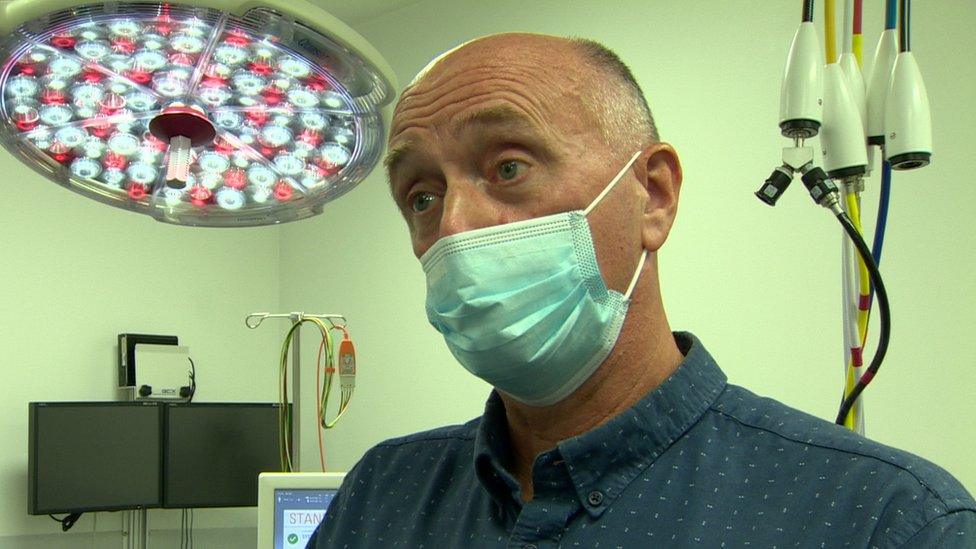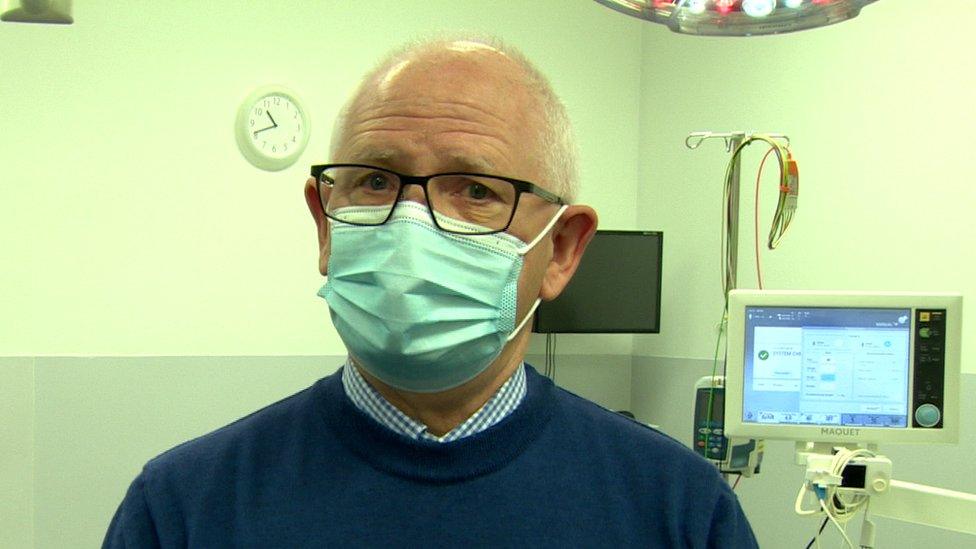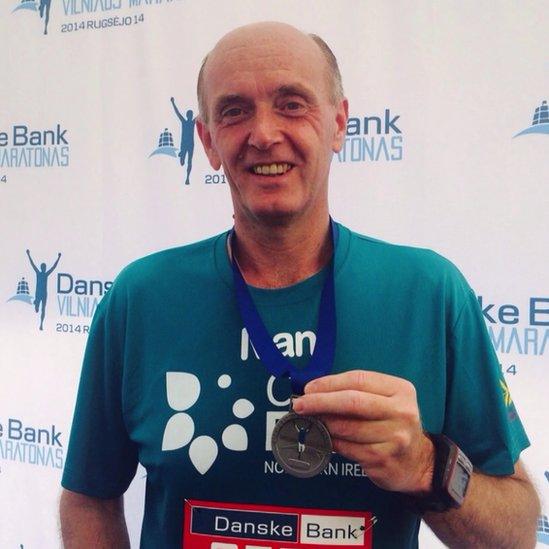Belfast pancreatic cancer survivor's message of hope
- Published

Ivan McMinn, 59, is one of only 1% of people diagnosed with the illness who survive a decade
A Belfast man who is marking 10 years since his pancreatic cancer diagnosis has said he is living proof there is hope for those who get the disease.
Ivan McMinn, 59, is one of only 1% of people diagnosed with the illness who survive a decade.
Mr McMinn said in his case early recognition of the symptoms proved crucial.
He was sent for tests, following a second visit to a GP in November 2011, after developing an internal itch.
"I saw a doctor I'd never met before and she thought 'you look a bit jaundiced', she sent me for some tests and an hour later I was packed off to the Royal Victoria Hospital," he said.
"Three days later a consultant brought me into a room and said: 'The bad news is you've been diagnosed with pancreatic cancer, the good news is we can see where it is growing and there's a good chance it will be operable.'"
Ivan successfully underwent a seven-hour operation, known as a whipples procedure.
"What Mr Diamond (the surgeon) did was he removed the growth in my pancreas, my gallbladder, my duodenum and then he somehow or other joined me all up so that it all works again - quite an incredible man and I owe my life to him."
Ten years on from his surgery, Ivan returned to the Mater Hospital where he was reunited with the surgeon who saved his life, Tom Diamond.

Surgeon Tom Diamond said Mr McMinn's early diagnosis helped to save his life
"I was trying to be positive for Ivan but at the same time I was trying to be realistic with him and make him aware of just how major the surgery is," Mr Diamond said
"At that time there was a mortality risk of about 5%, although it's much less now, and patients at that time developed complications quite often," he said.
Mr Diamond has recently been appointed president of the Northern Ireland Pancreatic Cancer charity.
He said Mr McMinn's early diagnosis helped to save his life.
"It had presented very early for him, in that he became jaundiced early, but a lot of patients have the cancer located in a position where they don't present early," he said.
"They may present with very non-specific symptoms for quite a long period before it's diagnosed.
"Ivan has done incredibly well, not only with the help from us as the surgeons and oncologists, but also with his own very positive attitude, which is a key part as well in patients' recovery,"

Mr McMinn has since completed two London marathons
Mark Taylor, consultant hepatobiliary and pancreatic surgeon, said a timely pancreatic cancer diagnosis results in increased survival.
"One of the difficulties is we only see 266 people with pancreatic cancer every year in Northern Ireland, but every GP in the country sees many people with vague abdominal pain or dyspepsia, that heartburn phenomenon," he said.
"What we're really saying is, if you notice you become jaundiced - so yellow in the eyes, yellow in the skin. Your urine becomes very dark and your bowel motion becomes pale in colour, you need to seek urgent medical attention.
"If you have upper abdominal pain that is resistant to common medication such as acid-relieving drugs then you should also seek medical attention."
Mr McMinn said he hopes sharing his story will lead to a greater awareness of the symptoms of pancreatic cancer, improving the odds of a timely diagnosis for those who get the disease.